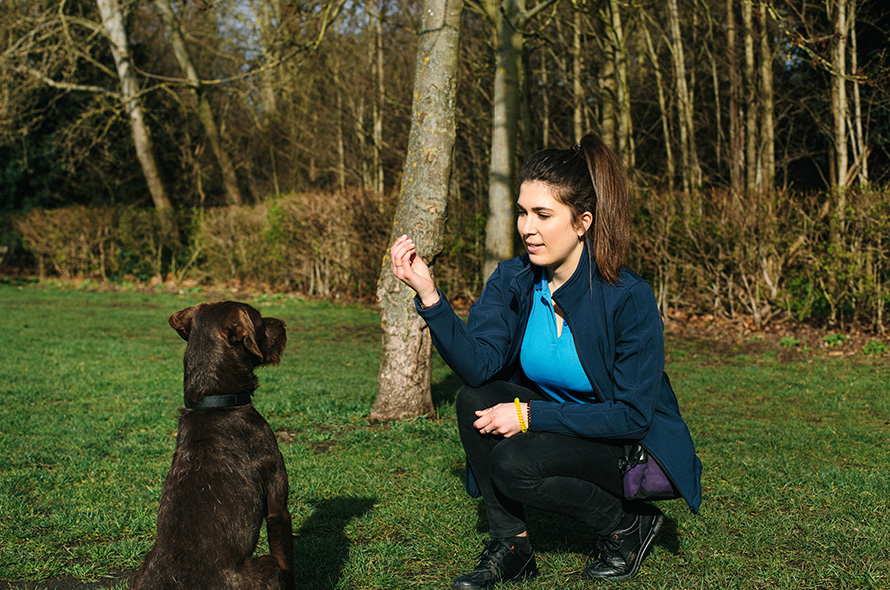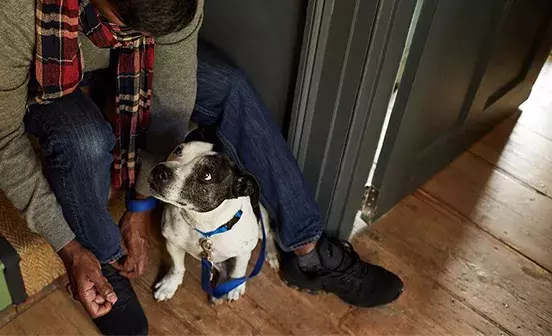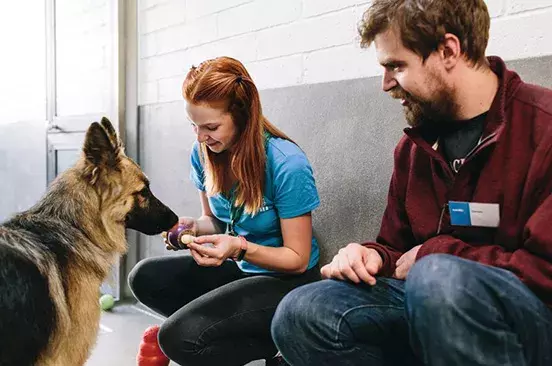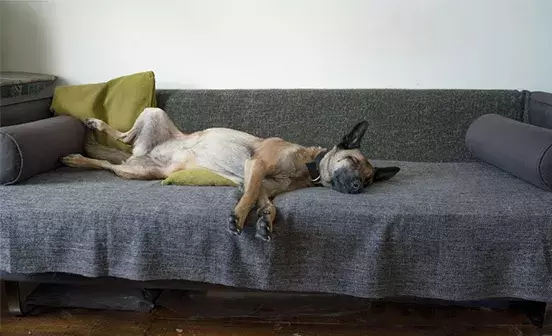Watch our video and read our step by step guide on teaching your dog to sit.

Teaching your dog to sit is a great behaviour to train your dog and can be the basis of other behaviour training. It helps with teaching good manners and is useful for keeping your dog under control.
Here's a step by step guide on teaching your dog to sit
Step 1
Hold a small, smelly treat in your hand and let your dog put his nose to it. Whilst they’re sniffing the treat, raise your hand up a little and over their head, towards their back. This movement encourages them to look up and put their rear end on the floor. Praise them and reward with the treat as soon as your dog is in a sitting position.
Step 2
Repeat step one until your dog is readily going into a sit by following the treat lure.
Step 3
Repeat as above, luring your dog with one hand, but now reward them with a treat from your other hand.
Step 4
Now it’s time to take away the food lure and instead introduce a hand signal and voice cue. Say “sit” and raise your palm to your shoulder. If your dog sits, praise and reward.
If they don’t sit, repeat the hand signal. Return to steps one and two if your dog needs a bit more practice sitting.
Step 5
Once your dog has mastered the hand signal with voice cue, you can train them him to respond just to the voice cue. Say “sit”, wait three seconds and then give the hand signal, praise and reward your dog when they sit.
Repeat this, each time increasing the number of seconds between the voice cue and the hand signal.
Step 6
Now your dog understands how to sit on cue, start to phase out the treat reward (but not the praise). Treat only the faster sits whilst still acknowledging the slower sits with praise. This should result in your dog sitting as soon as you ask them to.
Once your dog can sit reliably when asked, you can vary reinforcement and give treats every now and then. If the environment is distracting continue to reward frequently. Practice asking for this position in lots of different locations, a “sit” cue can be used in all elements of you dogs daily routine.
Download these six steps as a handy advice sheet and use it as a reminder to train regularly:



